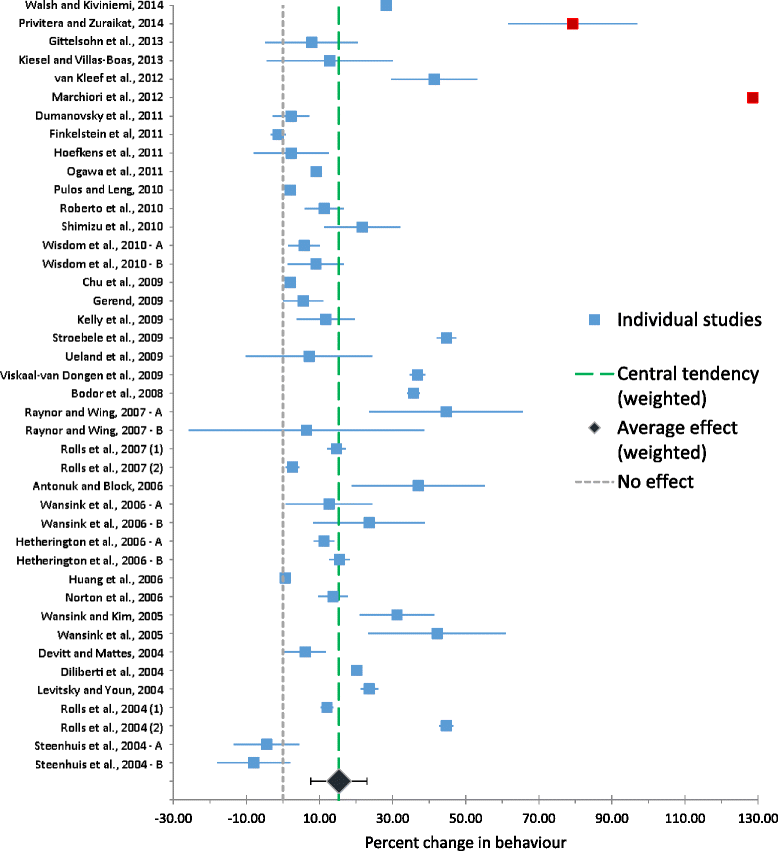The efficacy of nudge theory strategies in influencing adult dietary behaviour: a systematic review and meta-analysis
- PMID: 27475752
- PMCID: PMC4967524
- DOI: 10.1186/s12889-016-3272-x
The efficacy of nudge theory strategies in influencing adult dietary behaviour: a systematic review and meta-analysis
Abstract
Background: Obesity has become a world-wide epidemic and is spreading to countries with emerging economies. Previously tested interventions are often too costly to maintain in the long term. This leaves a need for improved strategies for management of the epidemic. Nudge Theory presents a new collection of methods, deemed "nudges", which have the potential for low-cost and broad application to guide healthier lifestyle choices without the need for restrictive regulation. There has not yet been a large-scale examination of the effectiveness of nudges, despite several policy making bodies now considering their use.
Methods: To address this gap in knowledge, an adapted systematic review methodology was used to collect and consolidate results from current Nudge papers and to determine whether Nudge strategies are successful in changing adults' dietary choices for healthier ones.
Results: It was found that nudges resulted in an average 15.3 % increase in healthier dietary or nutritional choices, as measured by a change in frequency of healthy choices or a change in overall caloric consumption. All of the included studies were from wealthy nations, with a particular emphasis on the United States with 31 of 42 included experiments.
Conclusions: This analysis demonstrates Nudge holds promise as a public health strategy to combat obesity. More research is needed in varied settings, however, and future studies should aim to replicate previous results in more geographically and socioeconomically diverse countries.
Keywords: Choice architecture; Cost-effective; Diet; Nudge; Nutrition; Obesity.
Figures
References
-
- OECD . Obesity Update. 2014.
-
- Avenell A, et al. Systematic Review of the Long-Term Effects and Economic Consequences of Treatments for Obesity and Implications for Health Improvement. 2004. - PubMed
-
- Thaler RH, Sunstein CR. Nudge: Improving Decisions About Health, Wealth, and Happiness. New Haven: Yale University Press; 2008.
Publication types
MeSH terms
LinkOut - more resources
Full Text Sources
Other Literature Sources
Medical
Miscellaneous



